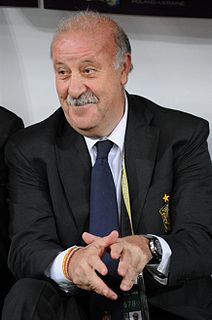A Quote by Twyla Tharp
There is a moral dimension, for me, in anything that's any good.
Related Quotes
It is an assumption that there is always one single dimension for assessing persons and their actions that has canonical priority. This is the dimension of moral evaluation; "good/evil" is supposed always to trump any other form of evaluation, but that is an assumption, probably the result of the long history of the Christianisation and then gradual de-Christianisation of Europe, which one need not make. Evaluation need not mean moral evaluation, but might include assessments of efficiency, ... simplicity, perspicuousness, aesthetic appeal, and so on.
We recognize that our progress as a species does not have to be defined in terms of wealth or material and physical growth any more than our progress as individuals has to be defined in terms of physical growth. Physical growth of the body reaches a limit, but the character and the soul of the individual continues to grow, or at least has a chance to continue, often to our last breath. It is simple minded to define our well being in material terms, when that well-being has an aesthetic dimension, and intellectual dimension, a moral dimension.
We have stagnant wages in America. We have stagnant, even declining net worth in this country. That's part of something that's much larger than any single individual. And that is something that is way above my pay grade, to be able to deal with, but it's something I deal with on a daily basis. All my life, from the time that I was very small, my feeling was always, that there's a moral dimension to life. And it's not the moralistic dimension to life, that we often hear about, that's rather church-y or whatever.
When you say there's too much evil in this world you assume there's good. When you assume there's good, you assume there's such a thing as a moral law on the basis of which to differentiate between good and evil. But if you assume a moral law, you must posit a moral Law Giver, but that's Who you're trying to disprove and not prove. Because if there's no moral Law Giver, there's no moral law. If there's no moral law, there's no good. If there's no good, there's no evil. What is your question?
For me, the moral dimension of life is that you are committed, to doing everything that you do, with a sense of excellence. That is the morality of writing, that you try and write as excellently as you possibly can. Or of teaching, or of childrearing, or of friendship. Of anything you do. And, I do try and live, as best I can, with all of the errors that I make, y'know, a value-driven life. And that is defining values as trying to give everything you do, everything you've got.
Lastly, our ancestors established their system of government on morality and religious sentiment. Moral habits, they believed, cannot safely be trusted on any other foundation than religious principle, nor any government be secure which is not supported by moral habits.... Whatever makes men good Christians, makes them good citizens.
Baseball is caring. Player and fan alike must care, or there is no game. If there's no game, there's no pennant race and no World Series. And for all any of us know there might soon be no nation at all. It is good to care - in any dimension. More Americans put their caring into baseball than into anything else I can think of - and most put at least a little of it there. Baseball can be trusted, as great art can, and bad art can't.
If I murmur in the least at affliction, if I am in any way uncharitable, if I revenge my own case, if I do anything purely to please myself or omit anything because it is a great denial, if I trust myself, if I take any praise for any good which Christ does by me, or if I am in any way proud, I shall act as my own and not God’s.






































